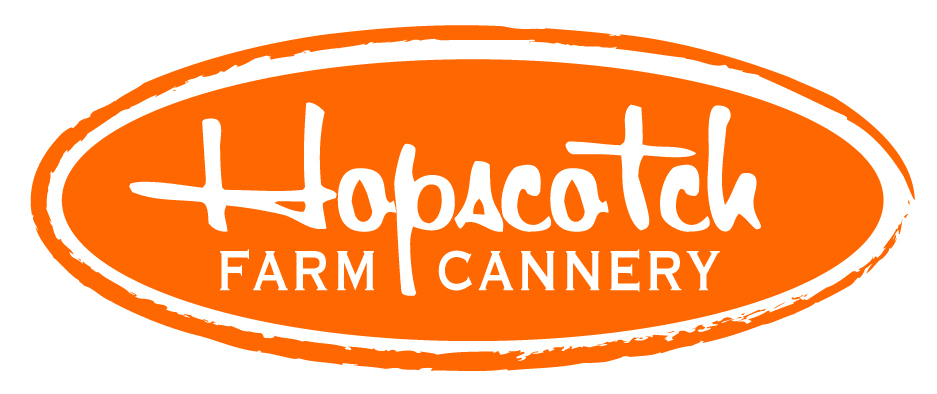Small is Beautiful
Hopscotch is a “Farm to Jar” operation that grows heirloom produce and crafts farmstead pickles, relish, and jam for farmers market, local groceries, and CSA in Port Townsend, WA.
Operating at a micro-farm scale (on approximately 1/2 acre), I use human-scale, hand-tended organic and sustainable production methods. My goal is to create a regenerative growing system that focuses on soil health, environmental health, and nutrient dense produce. And in the processing kitchen, I focus on quality over quantity and make everything by hand, one small batch at a time.
These methods give me a personal connection to each and every veggie harvested or jar made. Because a single human is intricately involved in each step of the process, from the growing to the prepping to the canning, every product is made with the upmost care and love.
Read more about my farming methods and my kitchen practices.
My Story
Hi! I’m Meghan. :)
I started Hopscotch in 2017 as a way to blend together my passions for working in the dirt, cooking in the kitchen, and being nerdy in the office. Since there were already many produce farms operating locally, I decided that in addition to offering fresh vegetables, I would also use my farm-grown fruits and veggies to make value-added, “farm to jar” products.
But without land and lots of start-up capital, I had to get creative if I didn’t want to incur major debt to make my dream a reality. Enter the multi-plot micro-farm idea! I started farming on 8 tiny urban plots, and have since transitioned to 2 small plots located in unused open spaces in Jefferson County. Not only am I leveraging community resources, but I also support local landowners who no longer farm or garden on their property but still have a desire to see it in production.
Through Hopscotch, I am eager to support our community’s food sovereignty and resilience by creating high quality, healthy products year-round. I am also particularly excited to:
Produce nutrient dense, healthy foods that are available year-round, and increase the options people have for putting local food on their plates each day.
Help Jefferson County feed itself by showcasing the potential abundance of small open spaces (areas previously deemed unsuitable to agriculture or previously fallow/overgrazed land).
Create a model that can be replicated, both in our community and elsewhere, to encourage young entrepreneurs to start businesses with limited funding.
Educate community members on issues surrounding food systems, food sovereignty, and small-scale farming.
How did I get to this point? As a native Washingtonian, I began my career in nonprofit administration. Fortunately, this background actually gave me many of the skills I use today; a self-professed nerd, I look forward to the budgeting, bookkeeping, quality control and records almost (but not quite) as much as I look forward to being out in the field or in the processing kitchen.
But I am happiest with my hands in the dirt. I have been farming for eleven years now and have gained experience with different production methods on farms in Washington, California, and Arizona. Over the years, I often had access to surplus crops and, not wanting them to go to waste, I started processing “2nd’s” into many types of canned and fermented foods as a hobby. Apparently that was a slippery slope!
All these experiences came together to help me create Hopscotch Farm + Cannery, to weave together agricultural traditions, the craft of canning, and a sense of place in order to celebrate the abundance of the Olympic Peninsula.
Photography by Hopscotch Farm and by Andrew Wiese (photowiese.com) - thank you Andrew!


